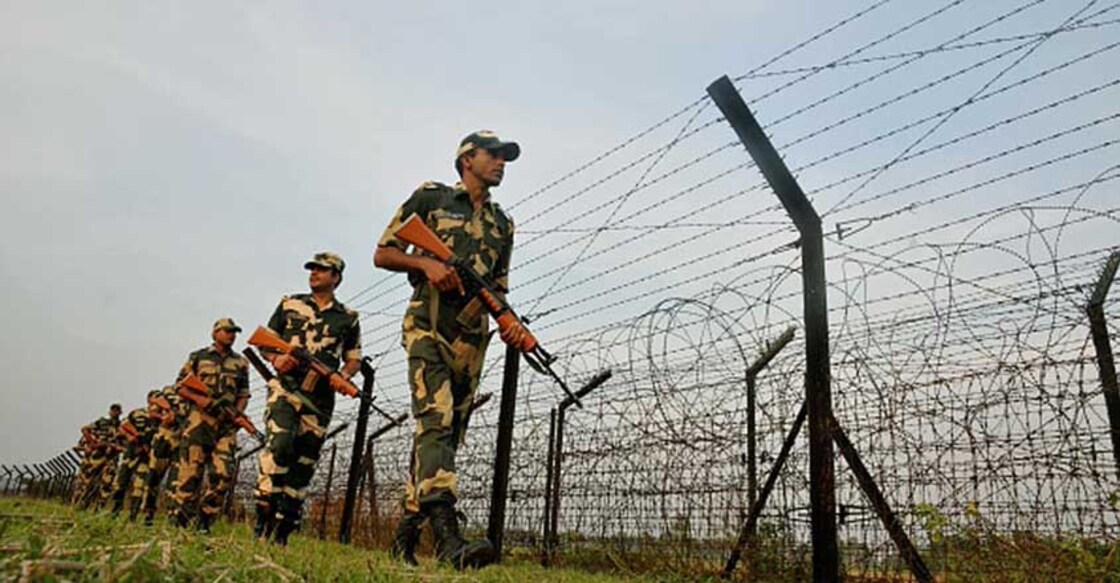It's a cut-throat agenda at Indo-Pak border | Quick Edit

Mail This Article
The slitting of the throat of a Border Security Force (BSF) jawan, reportedly by Pakistani Rangers, along the international border (IB) near Jammu has once again escalated tensions. After the BSF retrieved the body of the jawan amid 'strong and suppressing' fire from across the border, the force immediately initiated a range of 'escalations,' including an 'alert call' to the army at all Line of Control (LoC) positions.
Sniper shot
The BSF said head constable Narender Kumar was killed in a sniper shot. His body was found with three bullet wounds, throat slit. The Rangers refused to cease firing to retrieve the body and did not respond to calls to 'maintain the sanctity of the frontier,' the BSF said. Narender Kumar was part of a team which was deputed to clear view-hindering elephant grass called Sarkhanda. The team came under fire and they 'tactically extricated.' They found one missing.
Key occasion
The firing and subsequent throat-slitting come a week ahead of the anniversary of the cross-border terror camp 'neutralisation' carried out by Army commandos, on September 28-29, 2016. The tactical, precision strike had sent across a message of 'vehement action' against terror mechanisms and support systems set up across the border. The Army and the Government of India had reiterated that the forces reserved the right to counteract and respond to 'misadventure.'
Deliberate act
The throat-slitting of an 'active soldier' could only be seen as a bid to deliberately escalate and fan up latent tensions between the countries. It could either be part of a larger Pakistani army ploy to deter and derail an ongoing peace process or a deliberate 'deviation' tactic to infiltrate extremists through porous pockets as the forces turn elsewhere.
Imran's efforts
Experts say the Wednesday incident could have larger implications. Pakistan's new prime minister Imran Khan, who assumed office on August 18, is yet to get on the same page as that of the country's army. His statements of peace and a blanket statement that the country 'is not at war' with its neighbours have not gone down well with the army. Imran Khan's statements that the country would cut expenses, sell official cars, and open a world class university at the official residence of the prime minister was to augur in an atmosphere of democracy where the army would be a 'disciplined element of state power.'
Owning the state
However, Pakistan's army, which commands an unjustifiable amount of the country's GDP, as Shashi Tharoor, MP, puts it, is always inclined to own the state. So, the throat-slitting at the border could not be a stray and wanton act of a deviant patrol team but a larger and deliberate act of conspiracy hatched at the highest level. As crisis looms, the solution would be to see through the agenda of malice and prevent conflicts from escalating. More than ever, Pakistan is seeing a change and the Tehreek-e-Insaaf, Imran Khan's party, had of late been shunning its hardcore stance. The country is grappling with a looming balance of payments crisis, poor relations with the US, and internal squabbles. So, conflict non-escalation is more the neighbour's need than India's. Ultimately, lasting peace could happen only when Pakistan enters the theatre of maturity where political instruments take precedence over the army.


